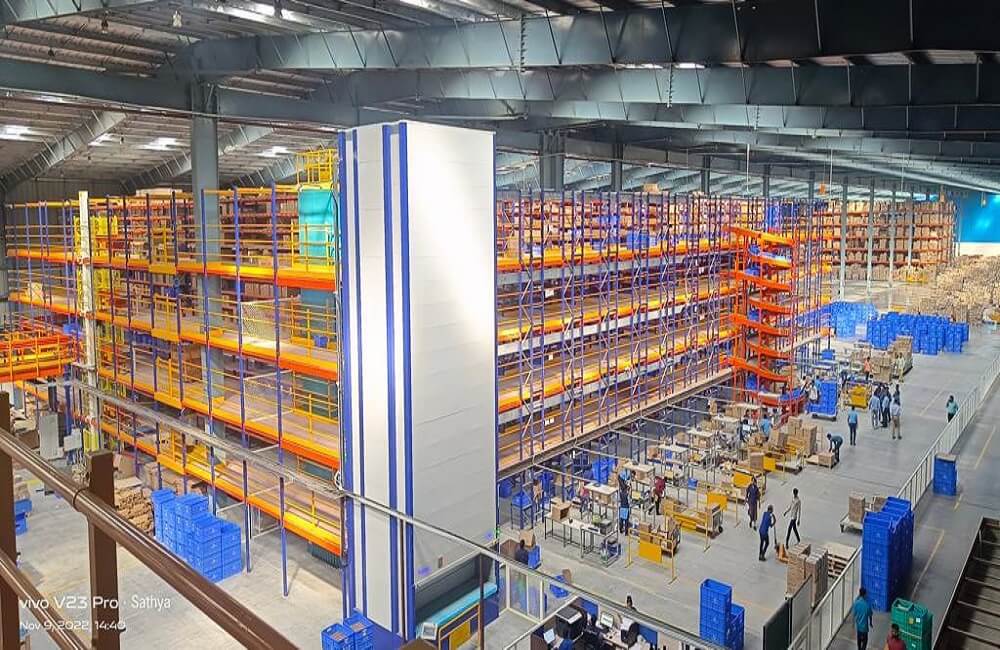The logistics industry is a crucial pillar of the Indian economy and is responsible for contributing more than 5% to the country’s GDP (as of 2021). As one of the world’s fastest-growing major economies, India handles over 4.6 billion tonnes of goods annually, which accounts for an overall cost of Rs. 9.5 lakh crore.
With the value of the Indian logistics market projected to reach approximately $380 billion in 2025 at a CAGR between 10% and 12%, as per ICRA, the industry is expected to employ over 22 million people in India.
Aspiring to become the world’s 3rd largest logistics industry, the introduction of the National Logistics Policy (NLP) 2022 by the Indian government is expected to bring about a dramatic revolution in the sector in the time ahead. The long-awaited policy aims to improve the infrastructure and efficiency of the logistics sector, which is crucial for the nation’s economic growth.
Creating World-Class infrastructure
One of the principal components of NLP is the establishment of top-tier infrastructure through the PM Gati Shakti initiative, which aims to integrate different infrastructure connectivity projects such as Bharatmala and Sagarmala, involving 16 ministries. To improve multimodal connectivity, it will prioritise the development of Greenfield Expressways, Freight Corridors, and Multi-modal Logistics Parks.
Improved infrastructure will reduce transportation costs, minimize transit times, and enhance supply chain reliability. Infrastructure projects have facilitated the growth of logistics players, including TCI Express, allowing it to expand its operations across a large swath of the country with over 900 branches.
Reduce logistics cost to single digit
NLP possesses greater potential to bolster infrastructure development and promote the competitiveness of Indian products in global markets. Creating multi-modal transportation hubs and an integrated logistics network connecting key production and consumption centres can significantly minimise transportation costs.
By mitigating costs from 13–14% to single digit by 2030, the policy can catalyse the intended outcome of increased efficiency and improved customer satisfaction, thereby engendering widespread benefits of policy changes across all economic sectors.
Innovation and technology
Technology has become an indispensable factor in driving growth within the logistics industry, which is a pivotal component of NLP. By leveraging innovative technologies such as automation, AI, blockchain, and IoT, the industry can seamlessly manage high shipment volumes, provide real-time tracking, and enhance transparency, contributing to the expansion of the logistics sector.
TCI Express has established itself as a frontrunner in adopting innovative technologies to improve operational efficiency. Among our key initiatives is the automated “GIGA sorting centre” in Tajnagar, Gurugram, which has significantly reduced costs while improving efficiency and turnaround.
Digitisation Bringing Shift in Logistics Sector

The implementation of the Unified Logistics Interface Platform (ULIP) within the framework of NLP is intended to consolidate all digital services pertaining to the logistics sector. This initiative will facilitate the real-time sharing of crucial information and ensure faster cargo movement. Moreover, the incorporation of various departmental systems via the Integration of Digital System (IDS) is poised to bring transparency and visibility to the industry.
Creating a benchmark for the industry, we at TCI Express have taken the lead in the implementation of digital initiatives such as business intelligence software, APIs, CRM-integrated ERP, and GPS-enabled fleets with real-time tracking to streamline our operations.
Transition towards clean energy
Making significant strides towards sustainable energy sources, the NLP is aimed at bringing about a major shift towards environmentally friendly freight transport. Embracing alternative sources of energy such as EVs and CNG can not only decrease operational expenses but also reduce carbon emissions significantly.
Ensuring that our operations are geared towards environmental sustainability, our Gurugram-based sorting centre runs entirely on solar energy, with a rooftop-installed solar power plant. While encouraging the use of CNG and BS-VI vehicles to restrict our emission levels, we are considering introducing EVs for last-mile deliveries.
Force multiplier of economic growth
The adoption of NLP is an essential step towards creating a robust and efficient logistics ecosystem that will drive economic growth and development in the nation. This includes accelerating sectoral activity, promoting entrepreneurship, resolving transportation-related issues, and reducing manufacturing costs and time.
The success of NLP is expected to not only revolutionise the logistics sector but also transform other industries, including manufacturing, production, automobiles, warehousing, and infrastructure development.



